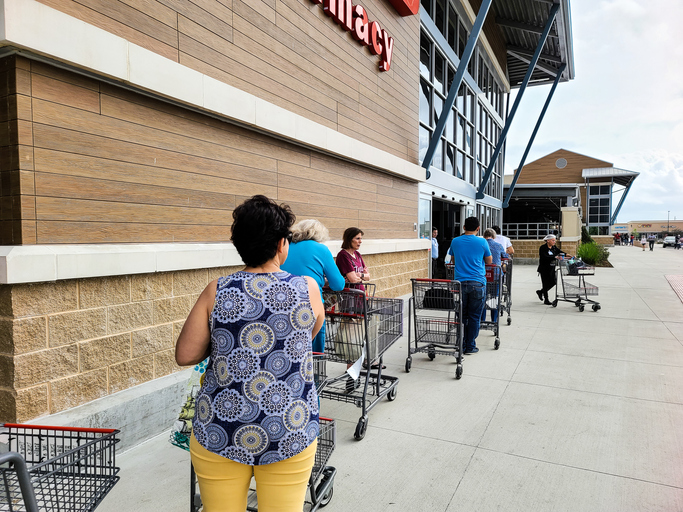With U.S. consumers facing higher prices and longer wait times to obtain many products, including basic food staples, lawmakers are calling on the Biden administration and state governments to remove government impediments to the production and transportation of food.
Record-setting prices include all-time highs for vegetable oils, cereals, and meats. Sugar and dairy prices have also risen dramatically, Pacific Northwest Ag Network reports.
U.S. farmers, trying to meet the demand for food, have been hampered by pandemic lockdowns, supply chain disruption, and now the inability to get fertilizer from Russia.
Senate Foreign Relations Committee Chairman Robert Menendez (D-NJ) and ranking Republican James Risch (R-ID) sent a letter to President Joe Biden on April 5 saying the world is facing the “worst food insecurity crisis in decades,” which “threatens to push millions of people into hunger and destabilize regions of strategic importance to the United States,”
A letter by 96 House Republicans urged the Biden administration to “review all available options to lower the cost of fertilizer” in order to increase food production in the United States. The lawmakers wrote, “Ongoing supply-chain bottlenecks and the rising cost of energy are among the factors sending fertilizer prices soaring, and disruptions stemming from Russia’s invasion of Ukraine will only compound the problem. As a result, Americans will pay more at restaurants, grocery stores, and elsewhere.”
Washington state Rep. Dan Newhouse (R) spoke on the floor of the state’s House of Representatives to address the shortages and cite the need for government to treat farmers better. Newhouse represented a group of Republican colleagues advocating repeal of “burdensome regulations that impact rural communities” and calling for “real solutions, not just empty promises.”
Newhouse said the policies of the Biden administration and the congressional Democrats are making problems worse for American farmers.
“Unfortunately, President Biden and his far-left Democrats are so focused on radically altering the country with their trillion-dollar spending proposals,” Newhouse said. They’re blind to the impacts their own policies are already having on Americans across the country. The cost of living is at a 40-year high and is still going up. Now they are looking to raise taxes, again, on small businesses and on family farms.”
Most of the farms in the United States are small, family-owned operations. These family farms create jobs and increase economic opportunities in their communities, and they may hold the key to relieving the pending food shortages, Autumn Spredemann writes in The Epoch Times.
“Localized supply chains created by family farmers come with the added benefit of lower transportation costs, less labor required on the production end, and help mitigate supply risk,” Spredemann writes.
U.S. consumers will probably be able to access food, but at higher prices, says John Rosen, a professor of economics at the Pompea College of Business at the University of New Haven. Fertilizer shortages will result in less planting, and, in some cases, farmers will just go out of business. Supplies will be stretched, so prices will rise, Rosen told The Washington Times.
The results of the current shortages will be felt for years, Rosen says. If farmers cut back on planting because of the high cost of fertilizer, they will have less money with which to buy resources next year. As a result, “it could take years for market dynamics to rebalance the global food supply,” the newspaper summarizes Rosen as saying.
“The Black Sea region produces the majority of wheat supplies for Europe, Asia, Africa, and the Middle East, and the U.N. Food and Agriculture Organization’s food price index indicated on April 8 that chaos in Ukraine had caused global prices to rise an unprecedented 13% in March,” the Washington Examiner reported on April 11.
Nonetheless, “Senior administration officials familiar with the latest deliberations” told the Examiner “the administration does not expect additional food shortages for American consumers.”
The Biden administration’s policies are causing much of the trouble, says H. Sterling Burnett, director of climate and environmental policy for The Heartland Institute.
“No set of Biden administration policies has had a greater impact on food prices than its energy policies,” Burnett wrote at RedState. “Oil and gas are critical to food production. The tractors, harvesters, loaders, trucks, trains, and irrigation systems on farms don’t run on unicorn farts or green energy fantasies; they run on diesel, gasoline, and natural gas. And the fertilizers and pesticides that make U.S. crop production and yields the envy of the world are made out of and using oil and gas as well.”











